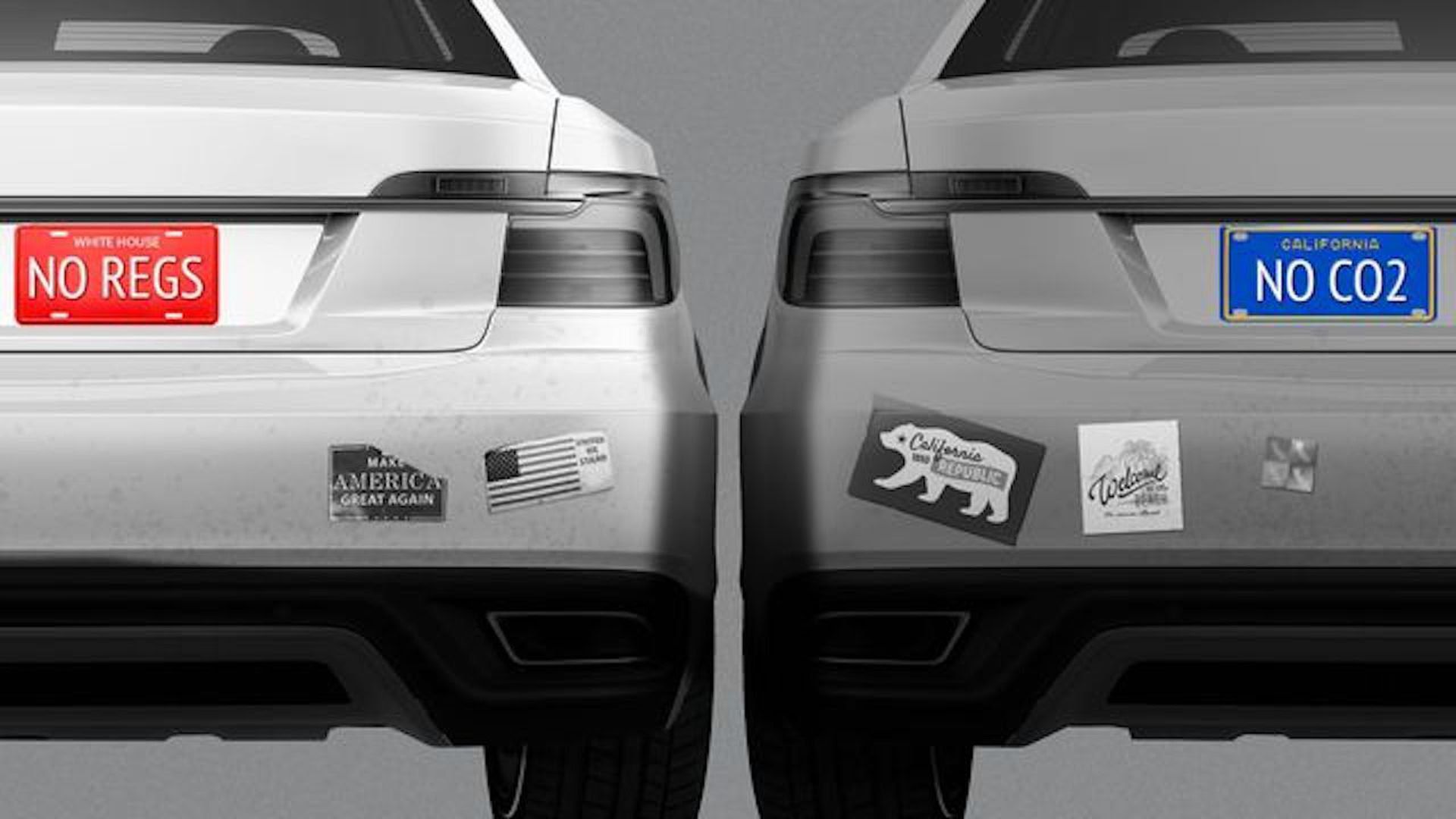Trump moves to block California from setting own auto emissions rules
Add Axios as your preferred source to
see more of our stories on Google.

Illustration: Sarah Grillo/Axios
The battle between the Trump administration and California over vehicle carbon emissions and mileage is getting hotter.
The latest: Trump announced on Twitter Wednesday that the EPA will revoke California's waiver under the Clean Air Act that enables the state to set CO2 emissions rules that exceed federal standards.
"The Trump Administration is revoking California’s Federal Waiver on emissions in order to produce far less expensive cars for the consumer, while at the same time making the cars substantially SAFER. This will lead to more production because of this pricing and safety advantage, and also due to the fact that older, highly polluting cars, will be replaced by new, extremely environmentally friendly cars. There will be very little difference in emissions between the California Standard and the new U.S. Standard, but the cars will be far safer and much less expensive. Many more cars will be produced under the new and uniform standard, meaning significantly more JOBS, JOBS, JOBS! Automakers should seize this opportunity because without this alternative to California, you will be out of business."
Why it matters: California wants to keep toughening the rules — which by proxy means tougher mileage mandates — in a way that's almost as strict as the national Obama-era standards they were following.
- But the White House is moving ahead with plans to freeze the Obama administration's federal emissions and mileage rules instead of allowing them to keep tightening.
- California is certain to battle the effort in court once it's finalized.
The big picture: California is the nation's largest auto market and roughly a dozen other states plan to follow California's emissions standards. This all has the auto industry fearful of a split national market.
Quick take: The EPA move could snuff out any hope automakers might have of avoiding a bitter legal fight between the administration and California that ensures ongoing uncertainty about standards — one where they're caught in the middle.
The bottom line: "This will be the biggest fight in environmental law since the Clean Power Plan. Maybe bigger," Nathan Richardson of the University of South Carolina School of Law, said via Twitter.
The intrigue: The political landscape could shift quickly if a Democrat wins the White House, but that's hardly a guarantee of smooth sailing for the industry either.
- That's because several leading Democratic 2020 hopefuls want to go beyond former President Obama's rules that automakers called unworkable.
